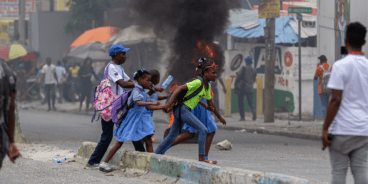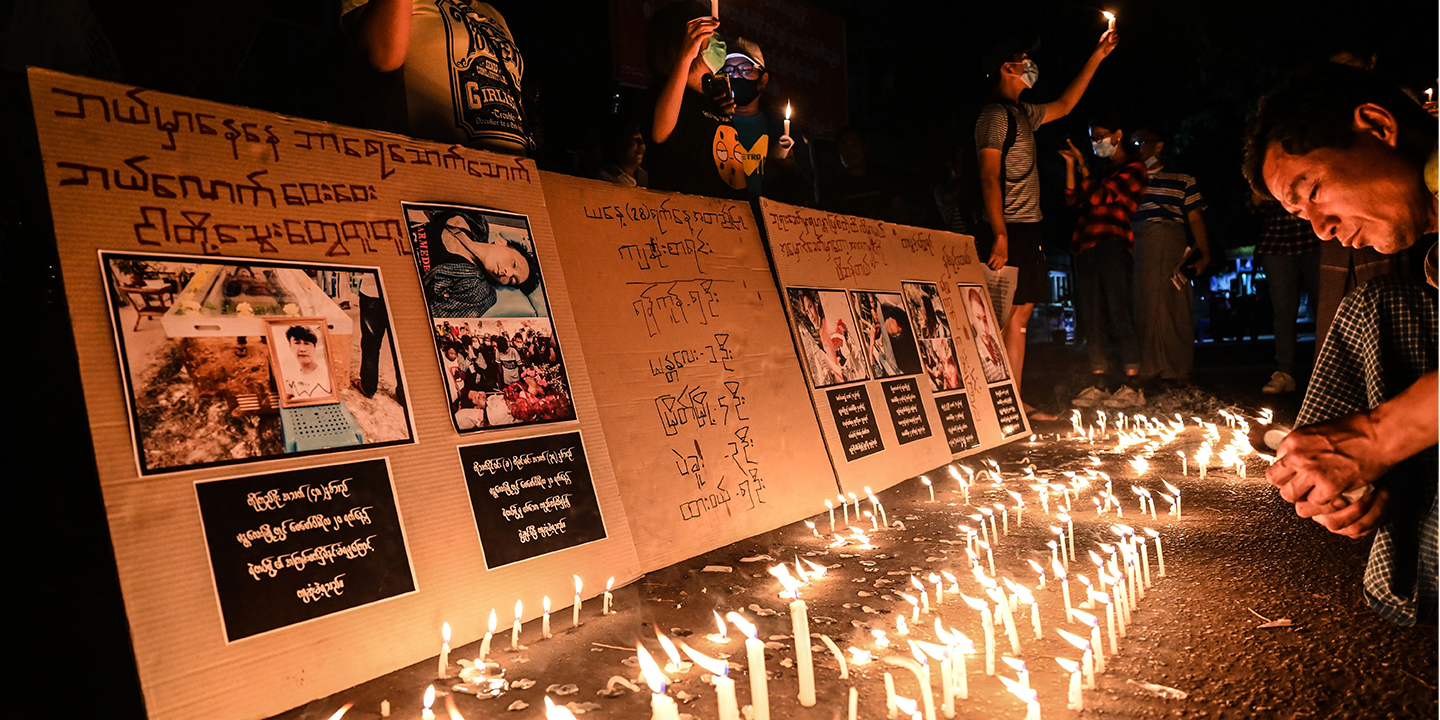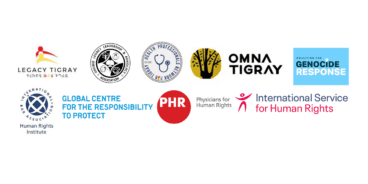

Atrocity Alert No. 242: Myanmar (Burma), Ethiopia, Nigeria and Syria
Atrocity Alert is a weekly publication by the Global Centre for the Responsibility to Protect highlighting situations where populations are at risk of, or are enduring, mass atrocity crimes.
Bloodiest day yet in Myanmar as military kills 38 protesters
On Sunday, 28 February, at least 18 people were killed by security forces firing live ammunition into crowds of peaceful protesters in Yangon, Dawei, Mandalay, Myeik, Bago and Pokokku. In addition to firing live ammunition, security forces used tear gas, water cannon, rubber bullets, and stun grenades against protesters in a widespread and systematic attempt to crush demonstrations. According to the Assistance Association of Political Prisoners, at least 1,498 people have been arrested since 1 February. At least 38 more people were killed by security forces in protests across the country earlier today, 3 March. The killings marked the bloodiest day in Myanmar since the country’s 1 February military coup.
On 1 March the Head of the UN’s Independent Investigative Mechanism for Myanmar, Nicholas Koumjian, condemned the military’s actions, saying that, “these acts, including the alleged use of excessive force against peaceful protestors resulting in killings and injuries, arbitrary arrests and enforced disappearances, may amount to serious human rights violations as well as crimes against humanity when committed as part of a widespread or systematic attack on a civilian population.”
Prior to this weekend’s violence, the UN General Assembly held an informal meeting on the crisis in Myanmar. During the 26 February meeting Myanmar’s Ambassador to the UN, Kyaw Moe Tun, denounced the coup and called on UN member states to take the “strongest possible measures to stop the violent and brutal acts committed by the security forces.” Ambassador Kyaw Moe Tun appealed to the UN to deny diplomatic recognition to the military regime.
The UN Secretary-General’s Special Envoy on Myanmar, Christine Schraner Burgener, also called on the international community to “not lend legitimacy or recognition” to the leaders of the military coup and stressed that “we must continue to call for the reversal of this impermissible situation, exhausting all collective and bilateral channels to restore Myanmar’s path on democratic reform.”
“The international community has a responsibility to protect the people of Myanmar from these potential crimes against humanity,” said Dr. Simon Adams, Executive Director of the Global Centre for the Responsibility to Protect, in response to the mounting death toll. “All UN member states should immediately impose an arms embargo and targeted sanctions on senior military officials, and refuse diplomatic recognition to the illegitimate leaders of this coup. Statements of concern are not enough, the world must act before the situation deteriorates further.”
Potential ‘ethnic cleansing’ in Ethiopia as Tigray conflict continues
As armed conflict continues in Ethiopia’s Tigray region, new evidence has emerged of Eritrean forces [reportedly allied to the Ethiopian federal government] allegedly massacring civilians and razing villages. On 27 February VICE World News utilized eyewitness testimony and satellite imagery analyzed by DX Open Network, a UK-based research organization, to report on attacks against civilians and the destruction of multiple villages, including Debre Harmaz and Adi Mendi.
According to a witness account of the 10 January attack on Debre Harmaz, Eritrean troops attacked the village and “shot at everyone. They even killed priests who were hiding in the church.” Satellite images analyzed by DX Open Network show that 478 structures had been set on fire following a separate attack on Adi Mendi on 19 January. The imagery revealed that homes in the area had been systematically burnt in a pattern consistent with intentional destruction. According to VICE’s reporting, some civilians were still inside the structures and were burnt alive.
DX Open Network also analyzed images that revealed that at least 500 structures were razed in the town of Gijet between 21 and 23 February. Eyewitness reports also continue to emerge of massacres in the town of Aksum, at Maryam Dengelat church and elsewhere in Tigray.
The current conflict has also exacerbated long-standing land disputes between the ethnic Tigrayan and Amhara populations. An internal United States’ (US) government report obtained by The New York Times documents a systematic campaign of “ethnic cleansing” against the Tigrayan population by federal government-allied Amhara militias. The US government report stated that the campaign was “deliberately and efficiently rendering Western Tigray ethnically homogeneous through the organized use of force and intimidation.”
The Global Centre for the Responsibility to Protect’s Communications and Digital Media Officer, Sarah Hunter, said that, “the commission of atrocities in Tigray must end. The UN Security Council must start responding to the Ethiopia crisis with the urgency the situation demands. The Human Rights Council should also hold an urgent debate on Ethiopia and establish an independent, impartial mechanism to investigate these shocking abuses.”
Mass kidnapping of girls and ongoing violence against children in Nigeria
Gunmen attacked the Girls Science Secondary School in the town of Jangebe, in Nigeria’s north-western Zamfara State, and kidnapped 279 students on Friday, 26 February. A group of men on motorcycles raided the school around 1:00 am and abducted the girls from their hostels. Following a joint operation by state police and the national army, on Tuesday, 2 March, the Nigerian authorities announced that the girls had been released.
Peter Hawkins, the UN Children’s Fund representative in Nigeria, said that the mass kidnapping was “a gross violation of children’s rights and a horrific experience for children to go through – one which could have long-lasting effects on their mental health and well-being.” North-western Nigeria has endured a recent spate of kidnappings of schoolchildren, including an estimated 333 boys kidnapped from a secondary school in Kankara, Katsina State, on 11 December. In February an armed group also abducted 27 students, 3 staff and 12 family members from a secondary school in the Kagara district of Niger State. Almost all of those kidnapped have since been rescued and released.
Although no group has claimed responsibility for the mass kidnapping at Jangebe, the armed extremist group Boko Haram has been responsible for similar incidents in north-eastern Nigeria, including the notorious mass abduction of more than 270 school girls in the town of Chibok in 2014. However, recent attacks took place further west in Niger, Zamfara and Katsina states, where criminal armed groups, known locally as “bandits,” are active. This has raised fears about the possible expansion of Boko Haram’s operations or increased collaboration with local bandits.
Armed banditry resulted in more than 1,600 people being killed during the first half of 2020 and has displaced more than 300,000 civilians in Zamfara, Kaduna, Katsina, Sokoto, Niger and Kebbi states since June 2020. The UN Refugee Agency (UNHCR) has also warned of a recent surge of violence in the north-west. According to UNHCR spokesperson Boris Cheshirkov, “refugees describe gruesome murders, kidnappings for ransom, and looted villages. Many have also been caught up in clashes between farmers and herders as well as vigilantism, as self-defense groups are being set up in most villages.”
Attacks on schools are a grave violation of the universal rights of children. In keeping with its 2014 commitment to the Safe Schools Initiative, the Nigerian federal government should work with local communities to enhance public security and bring an end to mass kidnappings and ongoing violence against children.
Historic Syrian torture verdict
On 22 February the Koblenz Higher Regional Court in Germany sentenced Eyad al-Gharib to four years and six months in prison for aiding and abetting 30 cases of crimes against humanity in Syria. This historic trial, carried out under the principle of universal jurisdiction, was the world’s first criminal trial addressing atrocities, specifically torture, perpetrated by the Syrian state during the country’s ongoing conflict. Al-Gharib, a former intelligence agent, was found guilty of aiding and abetting the torture of detainees at the al-Khatib detention facility in Damascus between April 2011 and September 2012. Testimony in the historic case was provided by some torture survivors. The trial of al-Gharib’s co-accused, former Syrian Intelligence Directorate Colonel Anwar Raslan, remains ongoing.
Related Content


